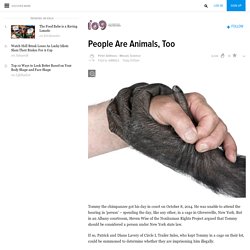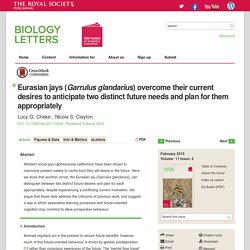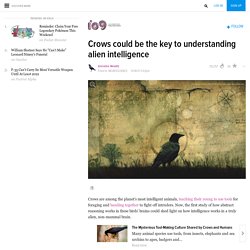

10 Fascinating Facts About Ravens. Edgar Allan Poe knew what he was doing when he used the raven instead of some other bird to croak out “nevermore” in his famous poem. The raven has long been associated with death and dark omens, but the real bird is somewhat of a mystery. Unlike its smaller cousin the crow, not a lot has been written about this remarkable bird. Here are 10 fascinating facts about ravens. 1. Ravens are one of the smartest animals. When it comes to intelligence, these birds rate up there with chimpanzees and dolphins. If a raven knows another raven is watching it hide its food, it will pretend to put the food in one place while really hiding it in another. 2.
In captivity, ravens can learn to talk better than some parrots. 3. Many European cultures took one look at this large black bird with an intense gaze and thought it was evil in the flesh … er, feather. 4. Cultures from Tibet to Greece have seen the raven as a messenger for the gods. 5. 6. 7. 8. 9. 10. Crows Are Even Smarter Than We Thought Possible
Tool Creation and Use. Problem Solving/Folk physics. Brain Anatomy. People Are Animals, Too. Reading this, I wonder what the correlation looks like for people who do or don't believe in human exceptionalism and those who do or don't subscribe to religion.

Do those who subscribe to Judeo-Christian beliefs (vs athiests or agnostics) tend to value animal life less because humans are created in the image of God and have souls while nonhuman animals aren't or don't? Also, a thought experiment... taking nonhuman animals out of the equation—if they didn't exist, for example—would you (any of you) consider it acceptable to experiment on human beings for the advancement of science and medicine? We do this to an extent voluntarily through clinical trials and what not, but I'm wondering if it would be acceptable to do to human beings what we currently do to animals in order, the more involuntary experimentation, if it advanced science and medicine.
Humans seem to have a general disregard for life on Earth, be it animal, plant or other... Flagged. Episodic-like memory during cache recovery by scrub jays : Abstract : Nature. Jays planning. Abstract Western scrub-jays (Aphelocoma californica) have been shown to overcome present satiety to cache food they will desire in the future.

Here, we show that another corvid, the Eurasian jay (Garrulus glandarius), can distinguish between two distinct future desires and plan for each appropriately, despite experiencing a conflicting current motivation. We argue that these data address the criticisms of previous work, and suggest a way in which associative learning processes and future-oriented cognition may combine to allow prospective behaviour. 1. Introduction Animals regularly act in the present to secure future benefits; however, much of this future-oriented behaviour is driven by genetic predisposition [1] rather than conscious awareness of the future. A number of studies have claimed to challenge the BKH [3–6]. Here, we present an extension of the scrub-jay work [7] with a new species, the Eurasian jay (Garrulus glandarius), and a within-subjects design. Figure 1. 2. (a) Subjects. Crows could be the key to understanding alien intelligence. But seriously, Annalee....

We're all ready for you to write the definitive science fiction novel about crows. In fact, you've been teasing us all far too long now :-) Write it already! Flagged I'm just gonna leave this here.... A crow goes tobogganing using a plastic lid. What Can Crows and Ravens Teach People About Resisting Temptation? Japan Fights Crowds of Crows.